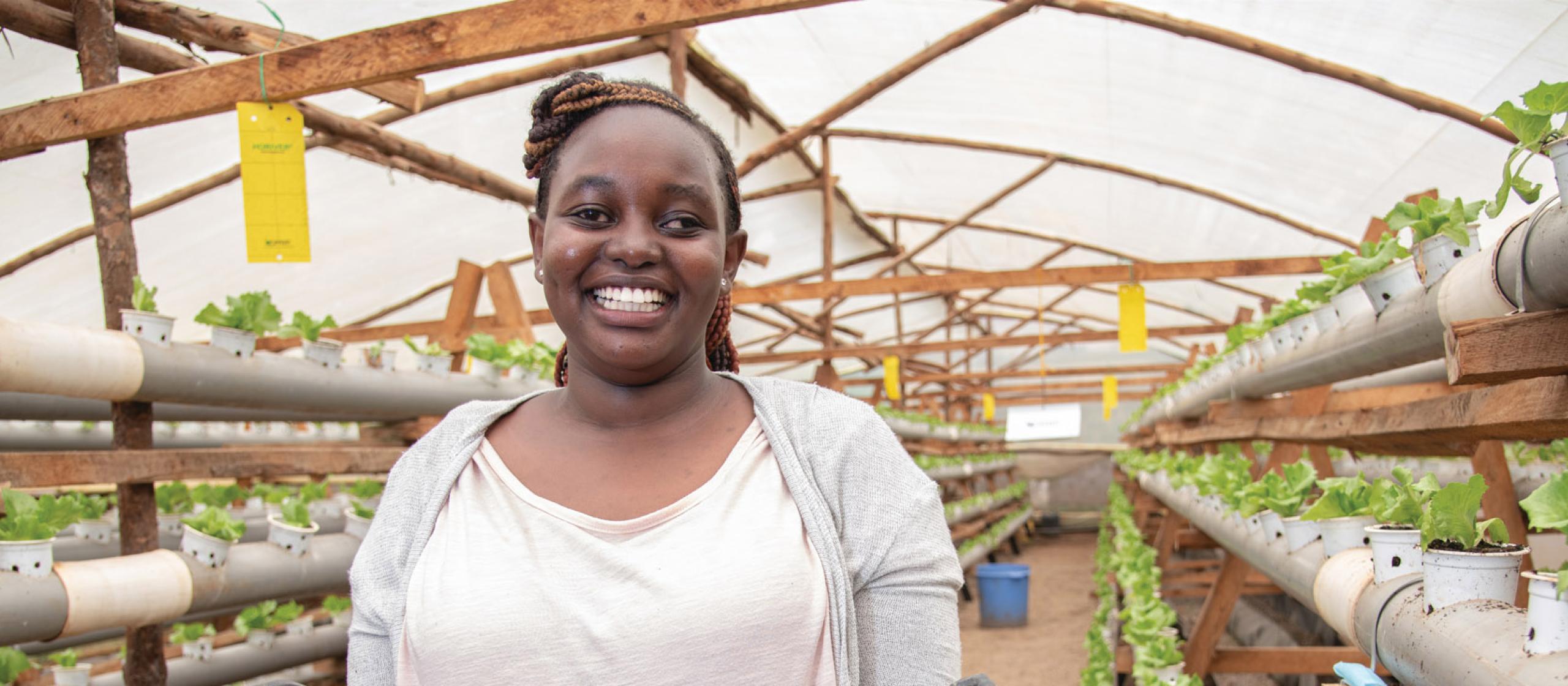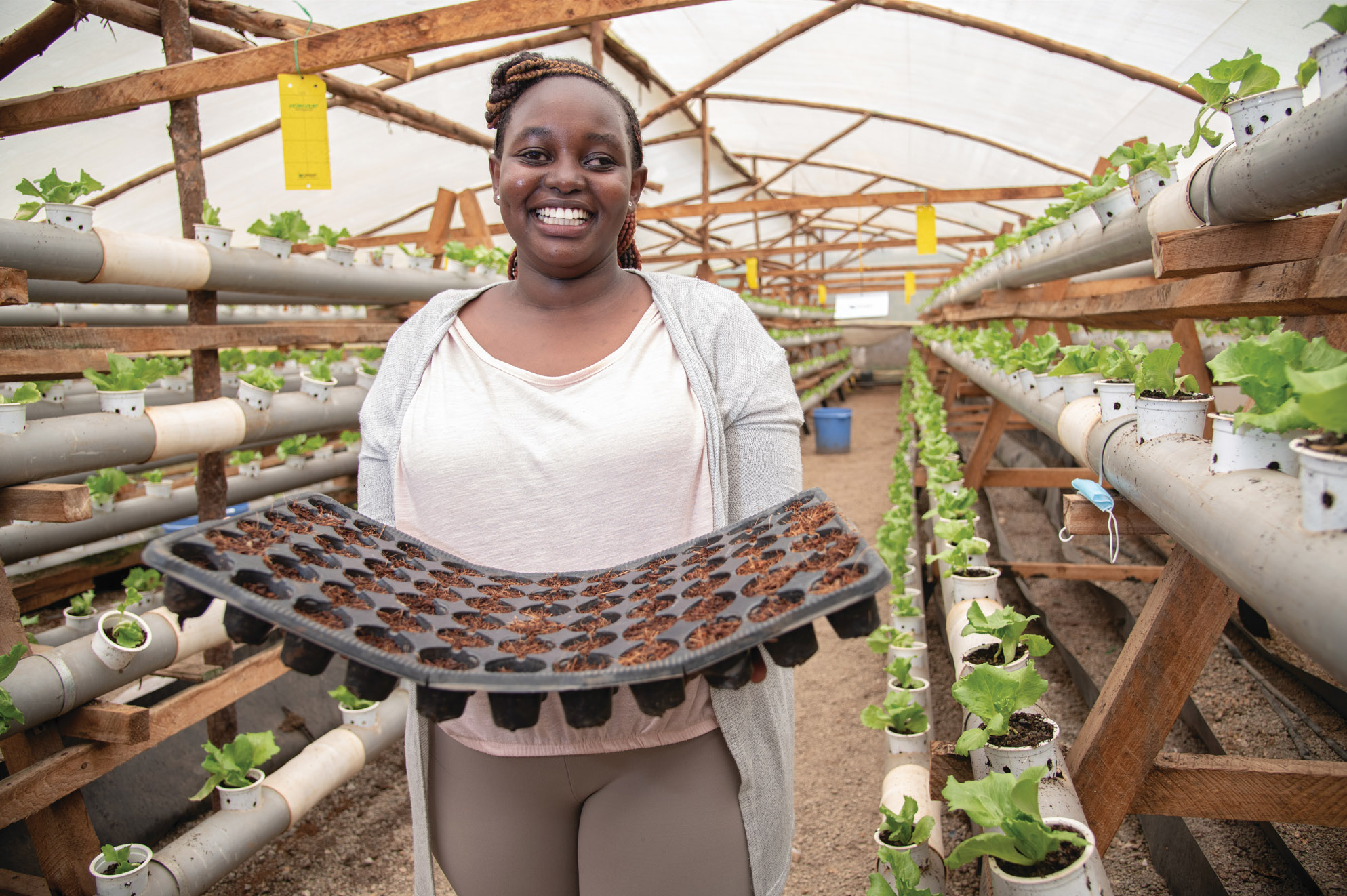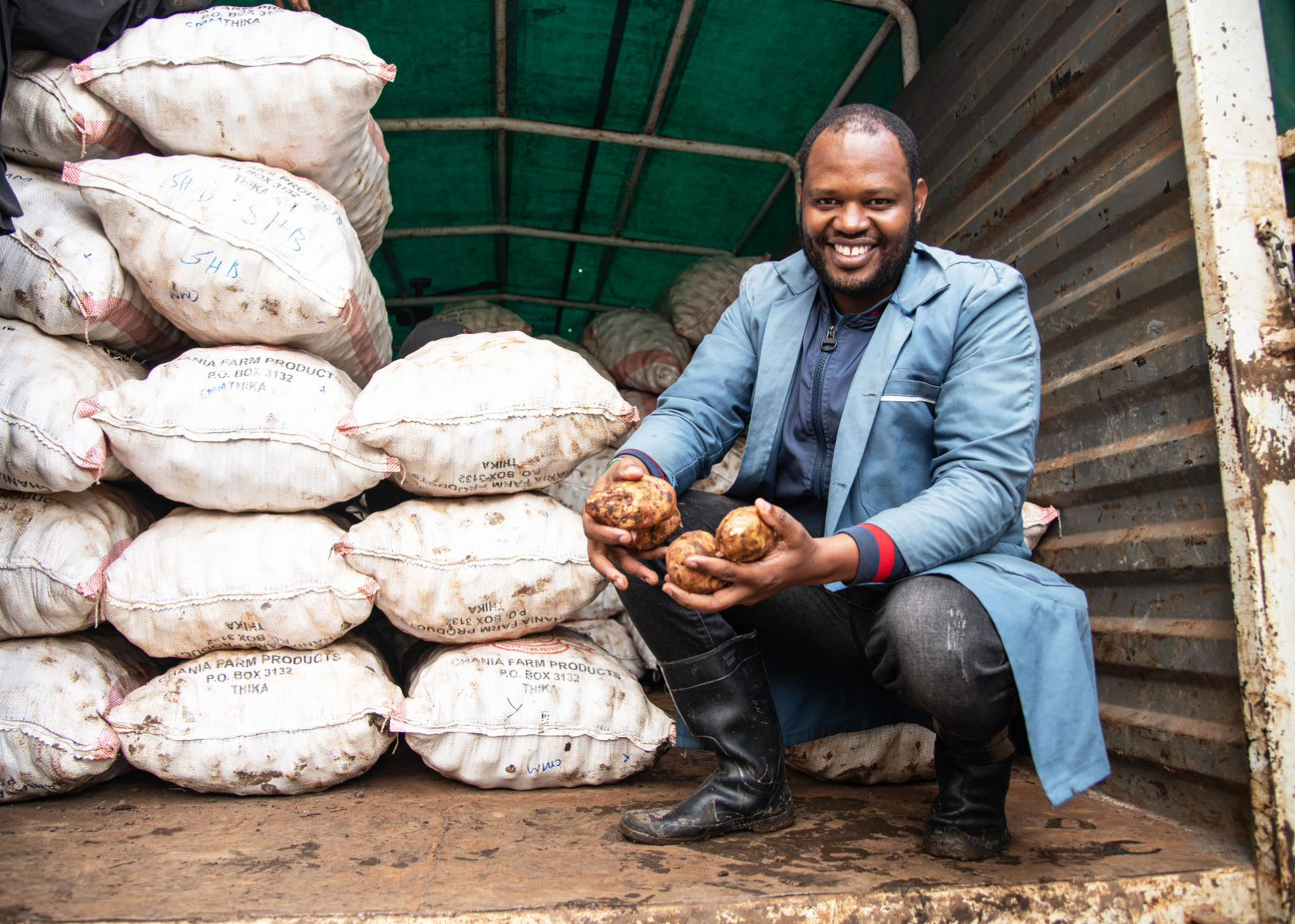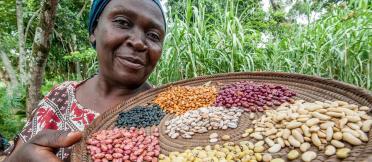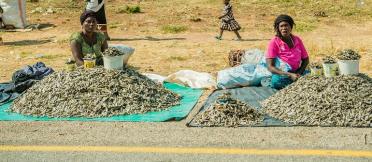Gender-inclusive aspects were embedded into the project from the start, using feedback from beneficiaries to inform the programming. For example, men generally wanted the training to be away from their home districts, but 85% of women wanted the training to be near their homes due to caregiving responsibilities and attachment to their environment.
The project also found that men were more likely to receive funding than women, so the project also included de-risking participants. This was achieved by teaching financial literacy and including finance providers from the beginning so they could communicate what they were looking for. It also allowed the finance providers to see how the program prepared participants to achieve business success.
Professor Njuguna said the program has had lasting impacts through creating businesses that go on to employ other young people. It has been used by local governments to improve their agribusiness strategies and has created mentors who can continue to train more people.
‘Some women who participated in the program have gone on to translate the learning materials into their local language and start training fellow women,’ said Professor Njuguna. ‘And, for me, that’s huge when someone decides “now I can do even more than smallholder farming and train others within my region”.’
These projects demonstrate how innovative research can be tailored to meet local needs, consider the different needs of male and female participants and contribute to successful outcomes, with the participants themselves carrying the work forward and continuing the momentum for change. Dr Leah Ndungu, ACIAR Regional Manager, Eastern and Southern Africa, highlighted this as part of the ongoing value of the CultiAF program, which leverages the collaborative investment of ACIAR and IDRC for greater impact.
‘CultiAF supports innovative research with the potential for breakthrough results that could be effectively scaled up and easily adopted along the value chain to improve food security in Eastern and Southern Africa,’ said Dr Ndungu.
ACIAR PROJECT: ‘Business models for scaling improved fish processing technologies in Malawi’ (GP/2019/170); ‘The effectiveness of the Metro Agri-Food Living Lab for gender inclusive youth entrepreneurship development in Kenya’ (GP/2019/172)
